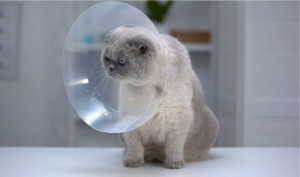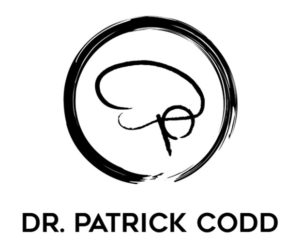
Over the years, there are many questions that seem to come up frequently. My incredible nurse practitioner Denise Lally-Goss and I have compiled a list of our top questions to help provide some general guidance and thoughts. Obviously these are general recommendations, and by no means do they apply to everyone in every circumstance! These are also mostly directed to my patients undergoing minimally invasive brain surgery through craniotomy, which is an opening in the skull.
Note! If you are undergoing pituitary surgery (which I perform using small endoscopes and instruments up your nose) I would recommend checking out this post specifically aimed at questions relating to pituitary surgery.
And finally, the general thoughts I am including below are with my patients in mind. If you are not my patient you need to check with you treating provider as recommendation can vary between different treating teams. For everyone though, it is important to take the reigns of your own health and healing and ask the critical questions that make sense for you. So, please reach out any time you have questions or concerns! We are here to help and guide you through this journey.

What should I expect right after surgery and in the following days? Expect a crash. This journey is emotional, stressful, and packed with energy that will shift once your reach the other side of the operation. The adrenaline has been pumping, anxiety may have been floating around, and you are coming off the fight-or-flight stress of a major life events. This comes with a natural, an expected, crash when the dust is finally settling after surgery. There will be fatigue, the feeling like you have been “hit by a truck” and “so tired.” You are coming down off the cliff of stress, not sleeping, and the anxiety around a surgery. Again this is normal and expected. Hold yourself and your family (who likely will experience the same thing!) with compassion. I have generally seen that it takes at least 48 hours to get better, and the swing of emotion takes time to settle. Be patient with yourself, your family, and those around you, it takes time to settle down.
How long before I feel normal after surgery? Obviously everyone’s situation, and capacity for healing and tolerating physical stress, is different. I generally see people reaching 75% of their normal by about 2 weeks after surgery and then creeping up to 100% or close to that by about 6 weeks after surgery. Again everyone heals a bit different.
What can I experience around my surgical site after the surgery? It is very common in the healing period for patients to describe a variety of sensations that they have never experienced in their heads before. These can include wooshing sounds in your ears, feeling of sloshing water, and weird sounds. You may feel pain, prickling, or itchiness along the incision. You may even feel intermittent head pressures. Obviously give my office a call if you are worried, but many of these sensations tend to abate on their own in the weeks after surgery. If your incision ever gets swollen, tender, puffy, warm to the touch or has any form of drainage you of course need to reach out to our office immediately as it may represent the sign of an infection.
Will there be headaches? Generally it has been my experience that people do experience some form of a headache after a craniotomy. It can take a variety of intensities and forms, and our goal is always to help minimize that pain and discomfort but also recognize that some discomfort may remain as the area heals. This is just like any other part of the body that is recovering from an injury or disruption. But some form of headache is usually expected, but thankfully, generally improvs in the days after surgery. Given our minimally invasive techniques, with minimal tissue disruption and keyhole approaches, my patients generally need very little strong pain medication, and typically are simply taking acetaminophen (ex. Tylenol) to sufficiently control their pain even one day after surgery.
When can I have sex again? Don’t worry, everyone asks! I would too! Generally I say that at least 2 weeks after your surgery, and of course when you and your partner mutually agree, and as long as there is no discomfort. And Denise reminded me to make the general recommendation that you don’t hit your head on the headboard. That’s supposed to be a joke. But seriously…

When can I drive? This is a very patient specific question, as you may have visual or physical difficulties that preclude safe driving. Check with your treating physician, or your my team if you are my patient. Generally however, barring a visual or physical difficulty that would obviously preclude it, I generally recommend at least 2 weeks off narcotics. If you have suffered a seizure, these recommendations are drastically different as state laws apply and you need to check with those specific laws and treating provider for when (or if!) you can start driving again.
How do I care for the incision on my head? I’ve outlined many of the details of incision care in my article How do I Care for My Surgical Incision. Broadly however, for those patient’s undergoing craniotomy, generally you will have an incision with a non-absorbable suture in place to allow it to heal. This means that this suture will not go away on its own, and needs to be removed. Generally you need to just leave your incision clean dry and open to the air to heal. I would not try to apply any special ointments or solutions to the incision.
When are the sutures removed? Generally sometime between 10-14 days you will need to have the sutures removed. This may change of course depending on how healthy your tissues are, where the incision is located, what specific type of surgery was performed, among other considerations. But generally sometime in this 10-14 day time frame. These are best removed by our team so we can get a close inspection of the healing process, but sometimes this can be performed by your local primary care provider.
Again, for more important information on how to care for your incision see my article How do I Care for My Surgical Incision.
Which leads to the next question…

How quickly can I start washing my hair? My general recommendation after cranial surgery is to keep the incision dry for at least 3 full days following the surgery. You can still wash the rest of your body, and even those parts of your head/hair where the incision is not. However I would wait those 3 days to allow the first step of epithelialization (skin closure and healing) to occur to create a water tight seal. After that, you can let soapy water run over the incision and just pat it dry. I would generally recommend using a baby shampoo while washing your head during the whole healing process, it is just a little more gentle on the area than those other shampoos. And this may seem obvious, but please don’t dig your fingers into the incision to clean it, or be rough in the surgical area, its healing and you need to be gentle.
 When can I go back to washing my hair normally? I would recommend waiting until your follow-up at 4-6 weeks and getting the all-clear before scrubbing your incision area as you would any other part of your head. After that you can generally go back to washing with whatever shampoo you prefer. Hari dyes are also fine at this point as well. This also includes waiting this long (with the clearance!) to go back to pools, oceans, hot tubs, swimming, or submerging your head underwater.
When can I go back to washing my hair normally? I would recommend waiting until your follow-up at 4-6 weeks and getting the all-clear before scrubbing your incision area as you would any other part of your head. After that you can generally go back to washing with whatever shampoo you prefer. Hari dyes are also fine at this point as well. This also includes waiting this long (with the clearance!) to go back to pools, oceans, hot tubs, swimming, or submerging your head underwater.


-Patrick
Important Legal Information and Disclaimer:
The medical information on this site and within all video, audio, written material and all associated content is provided as an information resource only and is not to be used or relied on for any diagnostic or treatment purposes. This information is not intended to be patient education, does not create any patient-physician relationship, and should not be used as a substitute for professional diagnosis and treatment. Please consult your health care provider before making any healthcare decision or for guidance about a specific medical condition. Dr. Patrick Codd and all affiliates shall have no lability, for any damages, loss, injury, or liability whatsoever suffered as a result of your reliance on the information contained in this site or material.
While I am holding myself out as a doctor, through this website I am not providing health care or medical advice or professional services, or attempting to diagnose, treat, prevent or cure any physical, mental or emotional issue, disease or condition. The information provided throughout this website pertaining to your health, wellness, exercise or any other aspect of your life is not intended to be a substitute for professional medical advice, diagnosis or treatment. Always seek the advice of your medical provider regarding any questions or concerns you have relating to your specific health or medications/supplements you are taking and before implementing any recommendations from this website. Do not disregard medical advice or delay seeking medical advice as a result of information reviewed on this website. Do not start or stop taking any medications without speaking to your medical provider.
© Brainso LLC, 2021. No part of the materials available through the www.drpatrickcodd.com site may be copied, photocopied, reproduced, translated or reduced to any electronic medium or machine-readable form, in whole or in part, without prior written consent of Brainso LLC. Any other reproduction in any form without the permission of Brainso LLC is prohibited. All materials contained on this site are protected by United States copyright law and may not be reproduced, distributed, transmitted, displayed, published or broadcast without the prior written permission of Brainso LLC.

[…] discussion about post-operative care and commonly asked questions, please check out this post on patient questions about craniotomy and this post on patient questions about pituitary […]